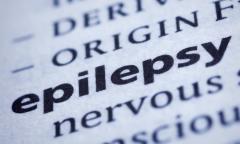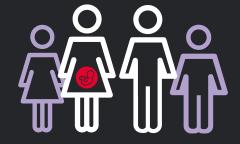Here is a list of anti-seizure medication (ASM), previously called anti-epileptic drugs or AEDs.
Each medication listed includes a link to information about what type of seizures the ASMs are used for, doses, and possible side effects from either the British National Formulary (BNF), British National Formulary for Children (BNFC), the electronic Medicines Compendium (eMC) or the National Institute for Health and Care Excellence (NICE) clinical guideline for epilepsy (NG217).
NICE is an independent organisation that provides national guidance to improve health and social care services in England.
Click on the links below to search for information about ASMs:
- by the generic name of the ASM
- by the brand name of the particular type of ASM.
Generic names with brand names
- Acetazolamide
- Brivaracetam available as Briviact
- Cannabidiol available as Epidyolex
- Carbamazepine also available as Tegretol, Tegretol Prolonged Release
- Cenobamate available as Ontozry
- Clobazam also available as Frisium, Perizam, Tapclob, Zacco
- Clonazepam
- Eslicarbazepine acetate available as Zebinix
- Ethosuximide
- Everolimus also available as Votubia
- Fenfluramine available as Fintepla
- Gabapentin also available as Neurontin
- Lacosamide available as Vimpat
- Lamotrigine also available as Lamictal
- Levetiracetam also available as Desitrend, Keppra, Neuraxpharm.
- Oxcarbazepine also available asTrileptal
- Perampanel available as Fycompa
- Phenobarbital
- Phenytoin also available as Epanutin, Phenytoin Sodium Flynn
- Piracetam available as Nootropil
- Pregabalin also available as Alzain, Axalid, Lecaent, Lyrica
- Primidone
- Rufinamide available as Inovelon
- Sodium valproate (important information for people with epilepsy under the age of 55 here) also available as Epilim, Epilim Chrono, Epilim Chronosphere, Episenta, Epival, Dyzantil
- Stiripentol also available as Diacomit
- Tiagabine available as Gabitril
- Topiramate also available as Topamax
- Valproic acid available as Convulex, Epilim Chrono, Epilim Chronosphere, Dyzantil
- Vigabatrin available as Sabril, Kigabeq
- Zonisamide also available as Zonegran, Desizon
You can find information about which types of seizures different ASMs are used for by following these links to either the NICE guideline, the BNF or, for children the BNFC.
Please note:
- Valproate: Sodium valproate, Valproic acid and Topiramate must not be used in females of childbearing potential unless the conditions of the Pregnancy Prevention Programme are met and alternative treatments are ineffective or not tolerated. During pregnancy, they must not be used for epilepsy unless it is the only possible treatment.
- For information on doses and side effects click on the ASM name above and this will take you to the electronic Medicines Compendium(eMC), British National Formulary (BNF) or British National Formulary for Children (BNFC)where you can view the patient information leaflet (PIL).
- A first line ASM is an ASM that is tried first. Some ASMs added to a first line ASM are called second line ASMs.
- ASMs are not split into first and second line for treating children age 12 and under.
- Treatment of neonatal seizures (from birth to 28 days of age) is not covered.
- ‘Effective’ means the seizures it works for. ‘Monotherapy’ means the ASM is taken on its own. ‘Adjunctive' or 'Add-on therapy’ means the ASM is taken alongside other ASM. ‘Tolerance’ means that a drug becomes less effective the longer you take it. A 'tertiary epilepsy specialist' is a speciailst with particular expertise and training in epilepsy. 'idiopathic epilepsy' is where someone's epilepsy is genetic or inherited.
- Information for this page comes from sources including the British National Formulary (BNF), the British National Formulary for children (BNFC) and the electronic Medicines Compendium (eMC).
- Every effort is made to ensure that all information is correct at time of publishing but information may change after publishing. This information is a guide only and is not a substitute for advice from your doctor. Epilepsy Society is not responsible for any actions taken as a result of using this information.
Information updated: September 2024

You can call our helpline on 0300 102 0024.
Our Helpline is open five days a week, Monday to Friday 9am to 4pm, (Wednesday 9am to 7.30pm).
You can also reach us by email
helpline@epilepsysociety.org.uk.
Side effects and interactions
As with all medications AEDs can cause side effects and possible side effects vary from one AED to another.
New to epilepsy treatment
The decision whether to start taking anti-epileptic drugs (AEDs) can be difficult, and there is a lot to think about. Here we look at the benefits and risks of taking, or not taking, AEDs.
Yellow Card Scheme
This guide explains how to report side effects of anti-epileptic drugs through the Yellow Card Scheme. It covers what information to include when reporting side effects and where to get a Yellow Card.
Generic and branded anti-seizure medications
Getting the same version of anti-seizure medication (ASMs) with each prescription may contribute to how well the drug works for that person.
Sodium valproate
Sodium valproate is an epilepsy drug prescribed for all seizure types including absence, myoclonus and tonic clonic seizures. New regulations have been introduced by the Medicines and Healthcare products Regulatory Agency (MHRA) around the way in which the drug, sodium valproate is prescribed to women and girls of childbearing age.






